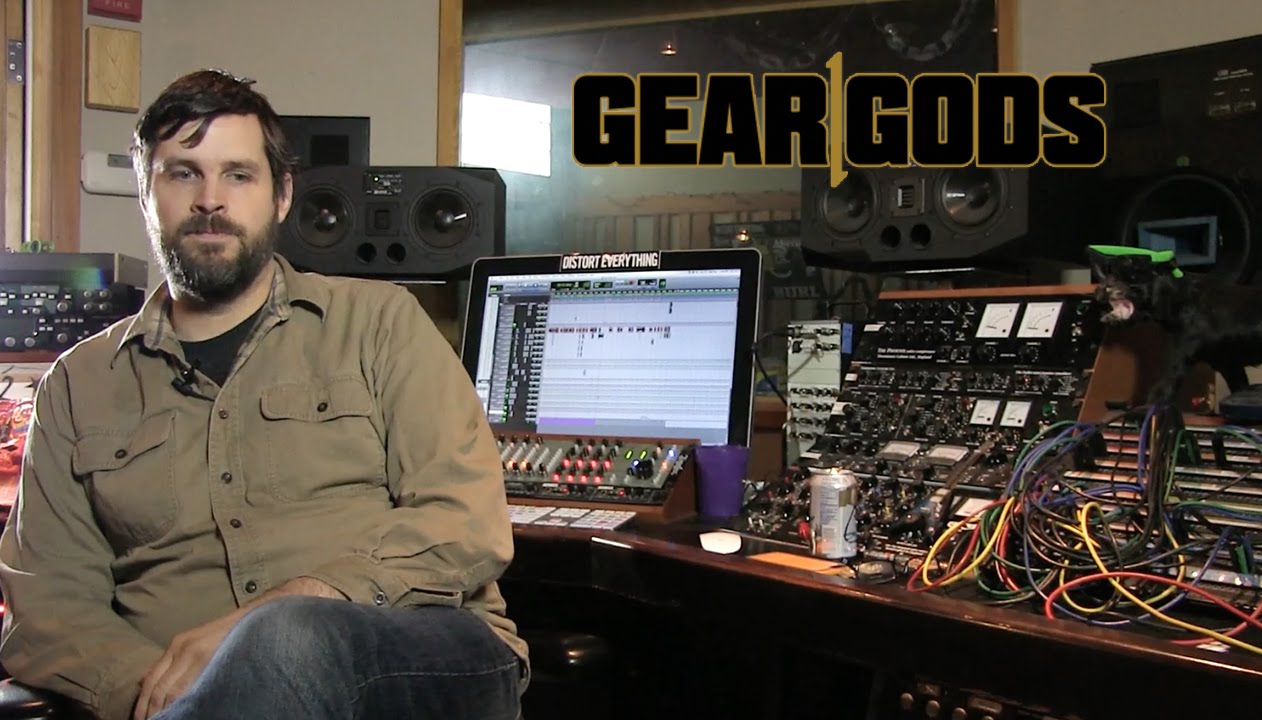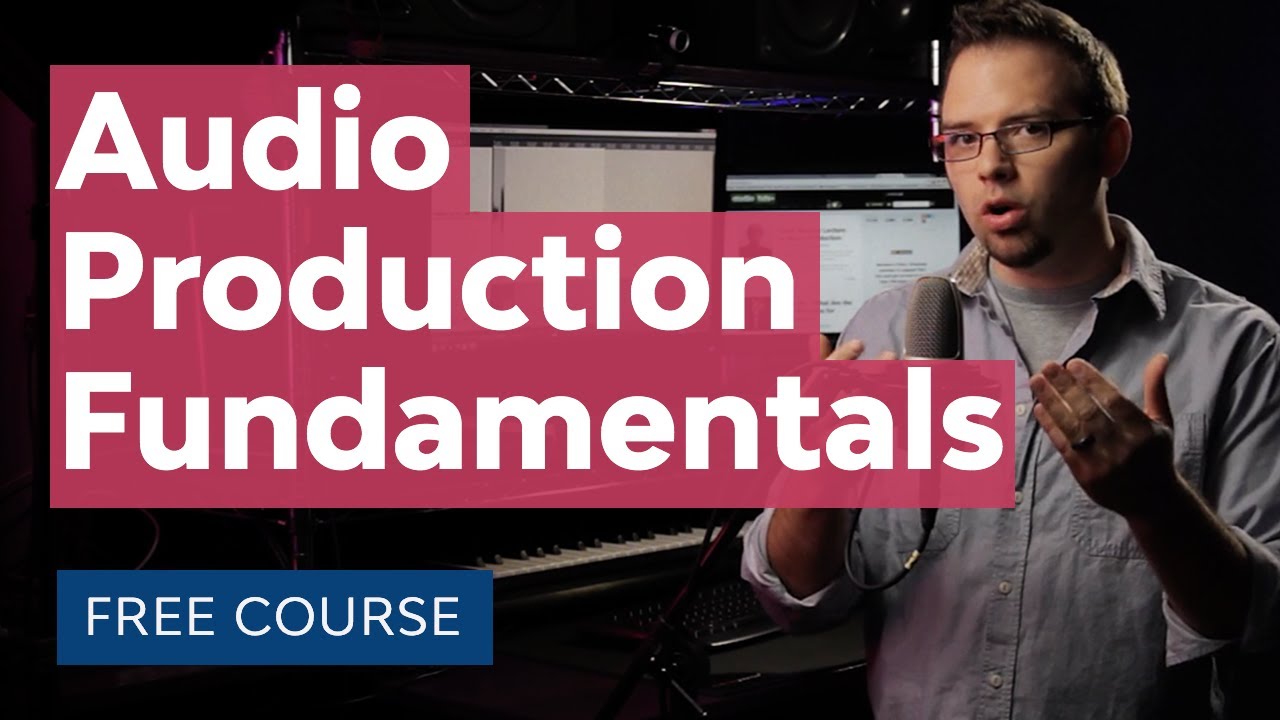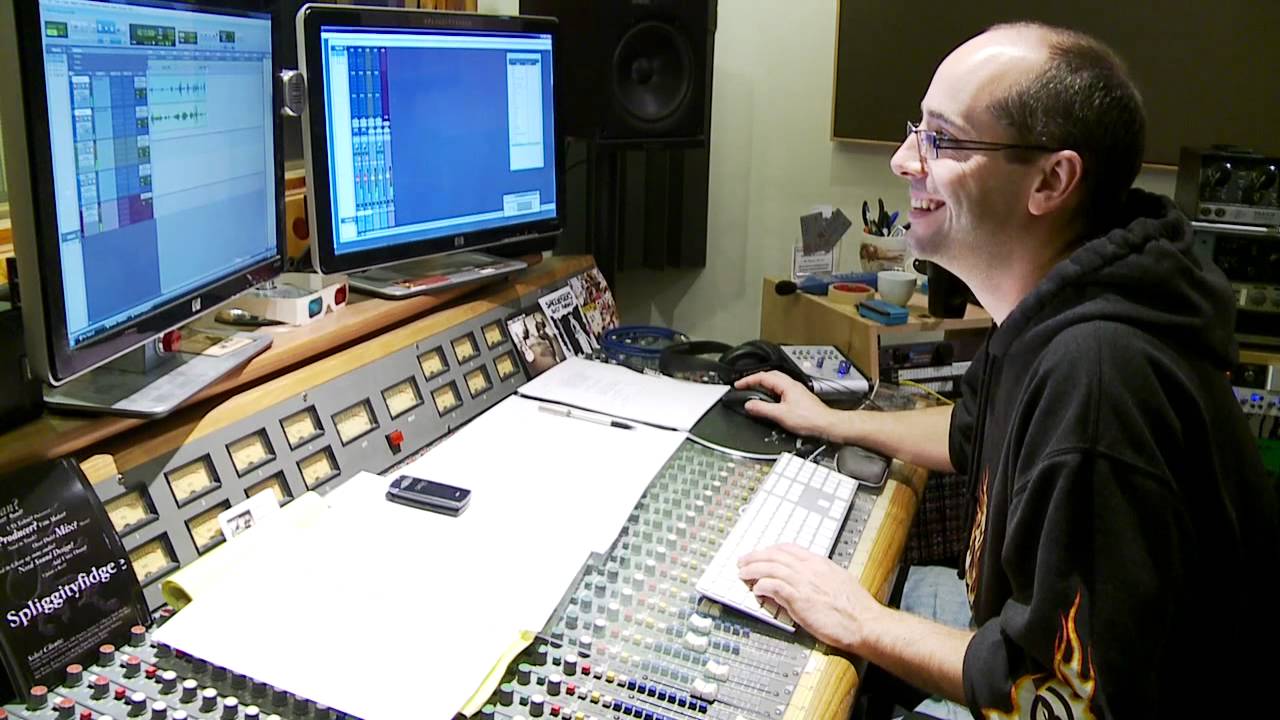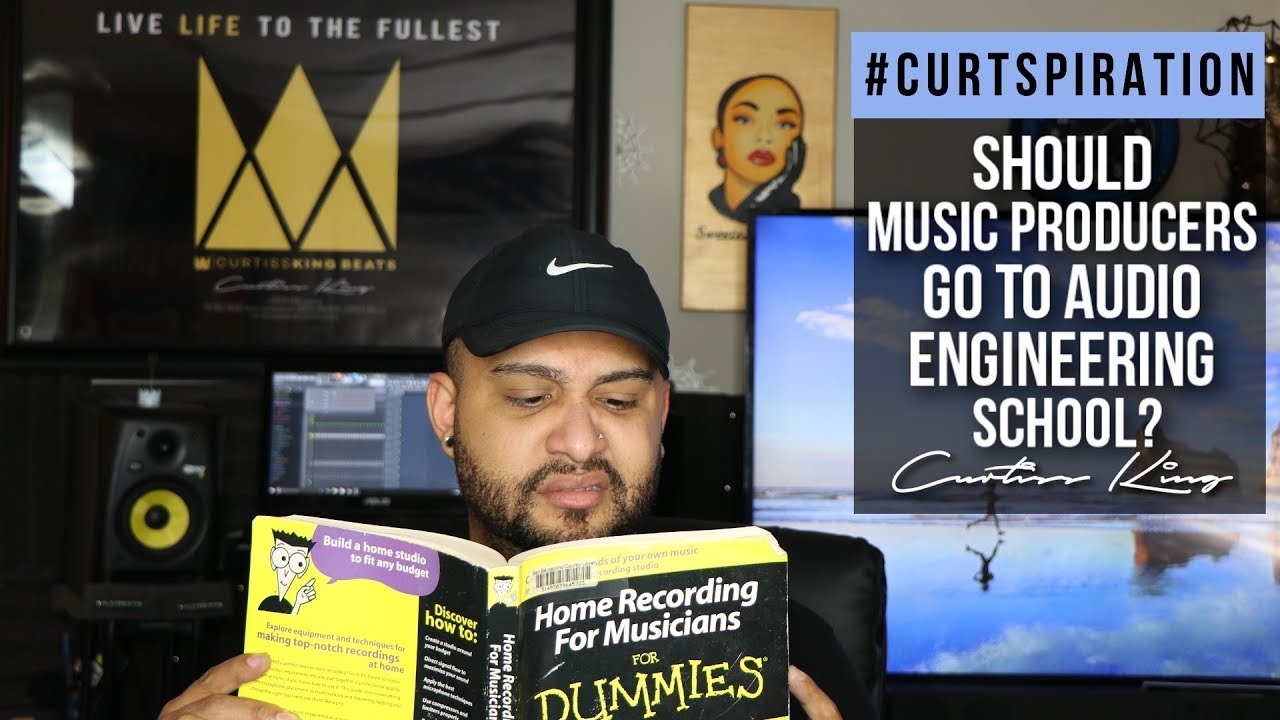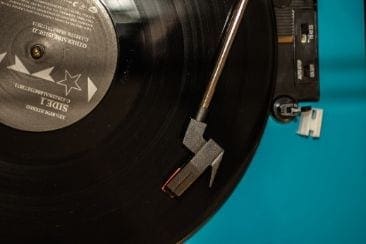By Tamarin Fountain
Whether you’re new to the industry or have been around for a while, the various terms and titles can be confusing, especially as there’s a lot of crossovers in roles. So who does what and how does it work?
While both work with artists on the sound and one person can take on roles, there is a marked difference between an engineer and a producer. Each has their own expertise and the higher profile the album is, the more specialised the skills required will be.
In this article, we’ll unravel any confusion you may have, unpack the technical terms of sound and production, and explain who does what at every level.
What’s the difference between an engineer and a producer?
In a nutshell, an engineer operates the soundboard and looks after the technicalities, under the direction of the producer’s overall vision – in line with the artist. The role of the producer is project management, so they juggle lots of tasks at one time, rather than concentrating on purely the sound creation, like the engineer. But there’s a good deal more to it than that, and we’ll be exploring the roles and opportunities in detail.
Hear how musician and producer Kurt Ballou of GodCity Studio describes the differences.
What does production mean in music?
This refers to the process of making music and incorporates the stages of things like writing, tracking, editing, mixing and mastering. Songs can be remastered and remixed at a later stage too, to give them a new lease of life, or an updated sound. This often happens when a studio plans to re-release a classic hit. Production is a process of perfection, and those working in the field have to be prepared to put in long hours and keep going until its absolutely right.
As Dr Dre says: “When the ideas are coming, I don’t stop until the ideas stop because that train doesn’t come along all the time. I’ve gone 79 hours without sleep, creating. When that flow is going, it’s almost like a high. You don’t want it to stop. You don’t want to go to sleep for fear of missing something.”
The difference between recording and engineering
Specific differences will also arise from certain genres of music, depending on what effects are involved. Some engineering will happen before a take. The recording is the act of actually laying down the tracks.
The difference between recording and producing
The act of laying down the track is recording, whereas music production is the wider picture, encompassing further composition, editing and mixing.
Audio production vs music production
Not all recording has music involved. Audiobooks and professional podcasts, for example, need production and sound team – but not a music producer. Audio engineers can work on both spoken work and music, making it a career with many possibilities and employment opportunities.
Audio engineering and sound production
The movie ‘Yesterday’ features many scenes in both high and low-level recording studios and gives an overview of the audio engineering and sound production process, from grassroots to Los Angeles.
Producer-engineer salary
Another difference that exists between producers and engineers, is what they get paid. Perhaps you’re thinking about getting into this field of work and are wondering what kind of remuneration you might expect from each job – or by working across the two roles.
Sound engineer salary – audio engineer salary
The average UK salary for a sound engineer in the music industry is £24,483, according to PayScale. Hollywood movie sound engineer Mattew Wood has a net worth of a cool 800 million dollars. A top engineer won’t come cheap.
Music producer salary
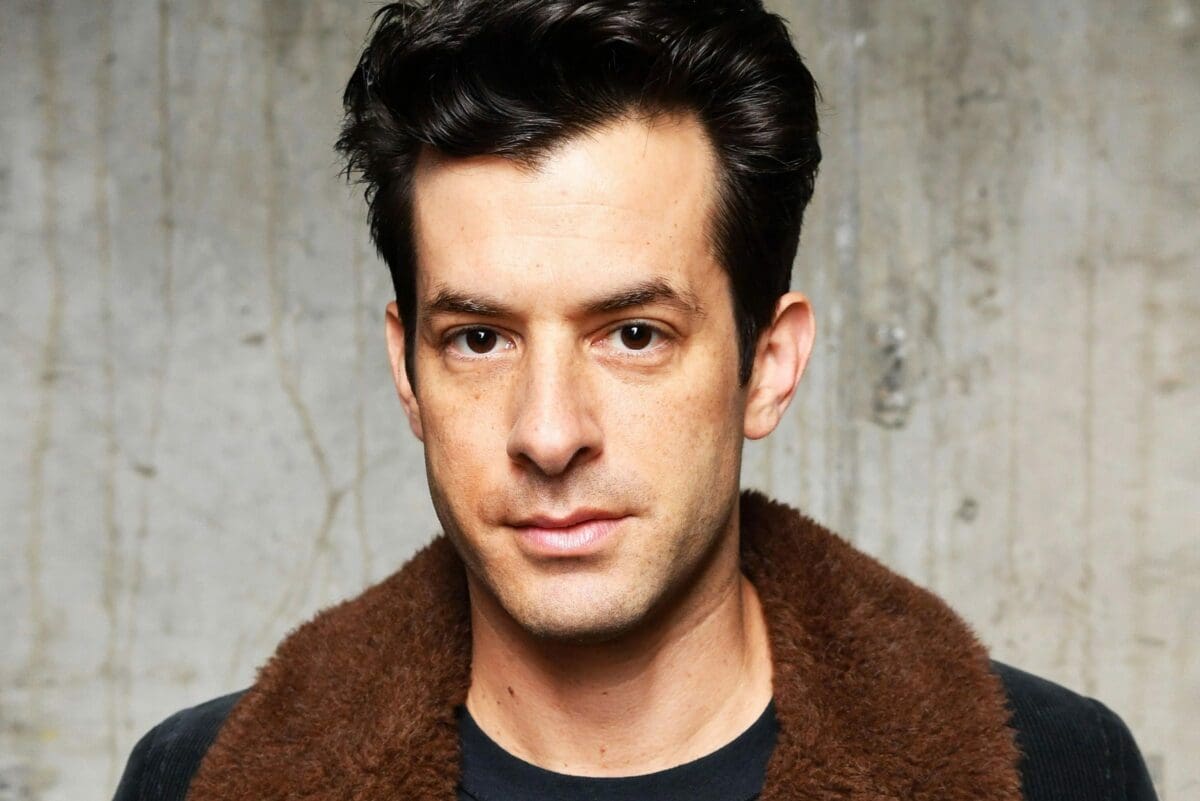
Photo: OML Entertainment Pvt. Ltd.
Mark Ronson, one of the world’s most famous and successful producers is worth an estimated 20 million, thanks to his collaborations with the likes of Amy Winehouse, Miley Cyrus, Bruno Mars, Lady Gaga, Adele, Lily Allen and many more. A great producer is a sought after commodity and can command big bucks as a result.
But not everyone climbs to these dizzy heights and the average UK salary for a music producer according to PayScale, is £24,287. This may be less than engineers, but famous producers will generally ask for more than a sound engineer. It may save you to use someone who does both roles combined.
Audio engineers
Audio engineers are behind the scenes but are vital in creating a fantastic sound on your album or EP. If you want to book a recording session, having a good engineer will be very important.
What does a musical engineer do?
Musical engineers mix, reproduce and manipulate the equalization and electronic effects of sound. They control all the sound levels, including mics and audio output to create the best sound.
Many sound engineers work in the media already and then train to specialise or undertake a degree course in the discipline as an entry point. Beyond that, much of an engineer’s experience is gained on the job: “You make your mistakes to learn how to get to the good stuff.” – Quincy Jones
Audio engineering schools and music engineering classes
If you’re considering studying to become an audio engineer, you’ll first need to decide whether to apply for an undergraduate course, post-graduate course, or diploma. Here are some of the institutions you might want to consider for your training. You’ll also find pre-degree and diploma courses at many local colleges.
- University of the Arts London
- University of West London
- Bournemouth University
- University of Derby
- University of Herts
- Bangor University
- University of Glasgow
- Oxford Brookes University
- The University of the West of Scotland
- Goldsmiths
- University of Salford
- Bath Spa University
- University of Manchester
- The Academy of Contemporary Music
- Point Blank Music School
- SAE Institute
- Abbey Road Institute
- Future works
Can a sound engineer be a producer?
A sound engineer can certainly become a producer. But it tends to work less this way around, than producers taking on an engineering role. This is because the producer has more of a ‘big picture’ view of a project, making it easier to dive into what the various roles involve. The engineer is much more specialised in just one area, so would need to expand that mindset into further areas. The best way to make this transition is to sign up for a music production course or shadow a producer for a time.
What skills do you need to be a sound engineer?
It helps if you start with great attention to detail, the ability to concentrate and stay in one place for long periods, an innate musical sense, the ability to work under pressure and have a flair for all things techy. Of course, you must also love music!
Here’s a day in the life of an audio engineer, to give you an idea of what you might expect.
Music producers
So you want to be a music producer? The best way to break into the field is to learn from the best and study music production in a studio environment or at a music academy. You’ll need to be a people person to be effective in this job, and be confident dealing with artistic temperaments, working under pressure and managing your own perfectionism.
“I think the hardest thing to overcome is judging yourself and being your own worst critic.” – Nile Rodgers
Music production courses
There are courses available throughout the UK to fit around your schedule – some are full time, others are run in the evening, on a group or one to one basis. This is an excellent way to learn some of the required skills and aspects of the job including:
- Pre-production
- Project management
- Recording, editing and mixing overview
- Repertoire
- Material and arrangement
- Basic tracking
- Vocal and instrumental overdubs
- Mixing, mastering and editing overview
- People management
- Organisation
Producer vs mixer
The producer will let the mixer know how they want it to sound, communicating the artist’s – and their own – vision. The mixer then makes that happen and brings the desired sound to life, in a creative way. A mixer is also an audio device, operated by the person doing the mixing.
It accepts, processes and combines audio. Learning how to use one of these is a key skill for a sound engineer working in the music industry. They’re also used in broadcast media and at live gigs.
Famous audio engineers
Audio engineers don’t make the headlines in the same way producers do. But they’re every bit as important. So while you might not recognise all of the names, here are some of the most successful ones, from current and previous eras.
- George Martin
- Phil Ramone
- Young Guru
- Dave Davies
- Needlz
- Martin Feveyear
- Chris Lord-Alge
Famous music producers
Here are some more big-name music producers:
- Dr Dre
- DJ Khaled
- Oak Felder
- Logic
- Beyonce
- L.A. Reid
- Kanye West
- Brian Eno
- Justin Bieber
- Jay-Z
- Timbaland
- Phil Spector
- Rick Rubin
- Prince
- Paul Epworth
As you’ll see from the list, many well-known artists double as music producers. This enables them to have greater control over their work – and make more money from it. Once an artist has achieved a level of fame and recording time, they often have the know-how and experience to move across to producing. As a singer, it’s often worth picking up some production skills and learning more about it.
These days you don’t have to be affiliated to a label to make cash. Many producers are freelance, working in different studios. A trend that we’ve seen an increase of, is the selling of ‘type beats’ to independent artists and rappers. The costs for this will be tiered according to exclusivity (charge more for something unique or bespoke). Royalty-free tracks like these can sell over and over, and once you’ve set it up, it’s all automated. It’s also often a cheaper and easier option for artists.
And it’s always important to have a strong YouTube and social media presence, letting the world know what you do – particularly for producers.
Finding a good music producer near me
If you’re ready to lay down some tracks, the first thing you need to do is find someone to work with you on it. It’s really important for the outcome that it’s a good match, that they understand your vision and genre. There are many people claiming to be music producers, but it’s up to you to check out their profile and experience.
Take a look at their website and social media.
- Who have they worked with?
- Are there artists they’ve produced you can chat to?
- What does their music sound like and where has it ended up?
If in doubt, a reliable and safe way to source a producer, is to speak to a well-known recording studio near you. They’ll have in-house producers and know freelance ones that might suit you. Bear in mind that very successful producers will have a price tag to match. So keep your ear to the ground for up and coming talent on the way up. Who is causing a new buzz in the industry?
How do I get my music mixed?
As many producers also mix and master, you might not need to seek out a separate engineer. If you do, the recording studio will be your best route to finding one. They’ll know the equipment and have an established relationship. Again, your engineer should have already worked with similar artists to you and understand your genre.
Here’s some final advice from Mark Kinchen and DJ Chuckie, on how to make it in this competitive field.
Working in the music industry as an artist, musician, producer, engineer or writer is tough and competitive. But these are also among the most rewarding careers you can ever undertake. And the sense of satisfaction from that making that perfect final track is massive. Make good contacts as you go along, find talented people to collaborate with and you’ll be on your way to a great future as a musician and artist.
Related Questions
What does a sound producer do?
Sound producers are responsible for audio content – this could be anything from jingles to radio chat shows, to film audio effects and more. Unlike the role of a music producer, it is not exclusive to songs and tracks.
What is the difference between a record producer and a music producer?
These terms are generally interchangeable. Both manage the overall recording and production of a band or individual artist. The term ‘record’ is retro and comes from the days when albums were made into hard copy records.
What does a music production company do?
The company will oversee not only the recording of the music but the manufacturing and distribution of the product too. Within the company, there will be various people taking on additional roles within production, such as admin and artist development.
Are you an engineer or producer who does both roles? Have you worked with either when recording tracks? Tell us about your experiences in the comments below.

